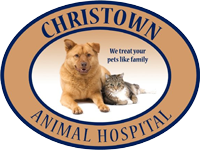The Importance of Dental Care for Your Pets: Info from a Veterinarian in Phoenix, AZ
March 20, 2018 6:11 am Leave your thoughtsThe vast majority of all pets will have experienced some form of periodontal disease by the time they are three years old. Depending on the severity of the condition, there are a variety of effects this could have on the animal’s health.
For example, dental disease could cause bad breath, make it painful for the animal to chew its food or even result in the loss of teeth. As bacteria builds up in the gums, it can eventually travel down to various internal organs.
Professional dental cleanings are required to get tartar and plaque off a pet’s teeth to be able to determine the state of the pet’s oral health. However, even some regular at-home dental care can go a long way toward preventing periodontal disease and ensuring the long-term oral health of your pet, in addition to regular visits to the veterinarian.
Here’s some information from a veterinarian in Phoenix, AZ about the importance of dental care for your dogs and cats.
What’s involved in dental cleaning for pets?
The purpose of dental cleanings for pets is the same as it is for humans—to remove plaque and tartar and assess the health of the entire mouth, including the teeth, gums, tongue and lips. For pets, however, thorough dental cleanings can only occur when the pet is put under general anesthesia, which keeps the pet completely free of pain during the procedure and also makes it easier for the veterinarian to better inspect the mouth and remove tartar.
The anesthesia process is relatively simple. The veterinarian inserts a plastic tube into the trachea to support the pet’s breathing. Using this tube also prevents the pet from inhaling any of the bacteria that gets propelled into the air during the cleaning process.
Your pet’s dental cleaning appointment could include any of the following procedures and steps:
- Removal of all visible plaque and tartar found on the teeth
- Removal of any plaque and tartar built up underneath the gums
- Analysis of dental sockets to assess or determine presence of dental disease
- Polishing of teeth to smooth out scratches to enamel that could act as a magnet for bacteria
- Application of a dental sealer or fluoride
- Dental x-rays to evaluate any potential problems existing below the pet’s gum line
- Thorough charting to track progression of dental disease in the pet
- Repair or removal of fractured or infected teeth
- Thorough inspection of the tongue, lips and mouth for wounds, growths or other issues
Keeping your pet’s mouth clean at home
There are some steps you can take as a pet owner to keep your pet’s mouth clean and to ensure good dental health. Your vet might tell you to use a plaque prevention product you’d apply to your pet’s teeth on a weekly basis.
Brushing your pet’s teeth to remove food particles can be helpful—you can use a child’s toothbrush or finger brush, but avoid using human toothpaste.
Finally, there are various dental treats, foods and chews that are specifically designed to minimize plaque and tartar.
For more information, contact Christown Animal Hospital today to speak to a veterinarian in Phoenix, AZ. We are currently running a special offer that reduces the cost of dental cleanings by $100—call today to schedule an appointment for your pet!
Categorised in: Teeth Cleaning, Veterinarian
This post was written by Writer

